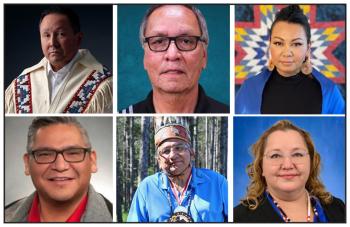Image Caption
Local Journalism Initiative Reporter
Windspeaker.com
Six names will be on the ballot when chiefs and proxies for the Assembly of First Nations (AFN) go to the polls to elect their new national chief on Dec. 6.
It’s a list with a lot of experience—Reginald Bellerose, Craig Makinaw, Sheila North, David Pratt, Dean Sayers and Cindy Woodhouse.
But Courtney Skye, a research fellow with the Indigenous think tank Yellowhead Institute, doesn’t believe it’s a list that wants to challenge the idea of AFN as a relevant organization.
“The only people that are still going to be inside of those older institutions are going to be people that see it working for them, or it has worked for them in the past, or it meets their needs,” said Skye.
She points to previous unsuccessful runs made by Mi’kmaq lawyer and professor Pam Palmater and First Nations policy analyst Russ Diabo, who both campaigned for national chief on platforms of change. Palmater was the closest contender in 2012 when Shawn Atleo won his second term as national chief, while Diabo lost in 2018 when Perry Bellegarde won his second term.
“There's been different people, different kinds of efforts to reform and shake up things at the AFN, but nothing seems to be having the effect of… having the AFN respond to grassroots or what's happening with people in communities,” said Skye, Mohawk, Turtle Clan, from the Six Nations of the Grand River.
RoseAnne Archibald won the 2021 election only to be ousted by chiefs this past June following allegations of harassment of staff and breach of the AFN’s whistleblower policy. Archibald had run her campaign on the need for “real and evolutionary changes within the AFN.”
Michelle Robinson, host of the Native Calgarian podcast, says she believes that along with trying to make systemic changes to an organization once known as the National Indian Brotherhood, another issue that Archibald faced was being the first woman to hold the position of national chief.
“We don't know if it was fully a gender issue, but I've seen so many comments that made me think it was a gender issue. So, for me, personally, I think that people were having a really hard time with the change in that old boys’ club,” said Robinson, who is Sahtu-Dene.
Robinson is hopeful that the two women contenders in the race now are considered for their abilities and not dismissed for their gender.
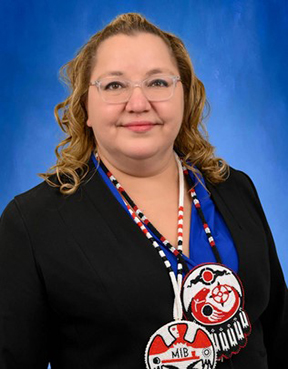
Woodhouse has “intergenerational governance behind her,” said Robinson, as her great grandfather was a signatory of Treaty 2.
Woodhouse, who is regional chief for Manitoba, was also AFN’s lead negotiator in the historic child welfare compensation agreement with the federal government, which was just approved by a federal court. It included $23.34 billion in compensation for First Nations children and families harmed by discriminatory underfunding within Canada’s child welfare program.
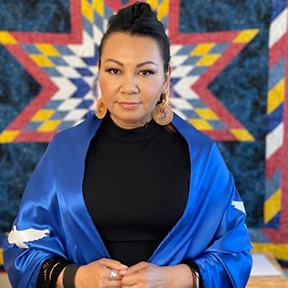
As for North, who went from journalist to politician, Robinson points out that she was runner-up to Bellegarde in 2018. Prior to running for national chief, North served as grand chief for the Manitoba Keewatinowi Okimakanak.
Regardless of whether the next chief is a woman or man, Robinson, who is also co-chair of Calgary’s missing and murdered Indigenous women’s planning committee, says it is important that “the issue of violence against Indigenous women is on the plan of all of the candidates. That's what I would be looking for when looking at their platforms.”
As for Archibald’s hardships being the result of a gender issue, Skye says there were people, women included, who fell on either side of that perspective.
“If you're a woman who saw how it was with Archibald and you didn't believe it was a gender issue, that might not stop you from pursuing this election,” she said.
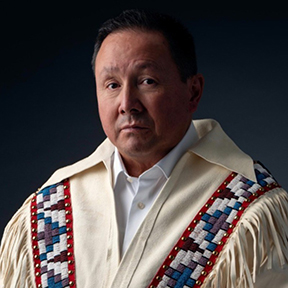
This will be Bellerose’s second consecutive election bid for national chief. In the 2021 election, the former chief of Muskowekwan First Nation conceded to Archibald shortly after the results of the fifth ballot were announced. Archibald ended up taking the position without having the 60 per cent vote as required by AFN election bylaws.
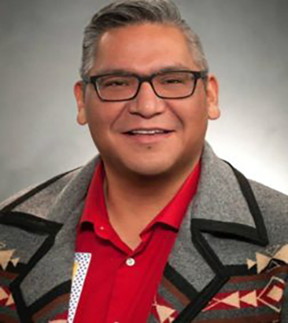
Pratt, who in August was the first person to announce his intentions to run, is first vice chief for the Federation of Sovereign Indigenous Nations in Saskatchewan.
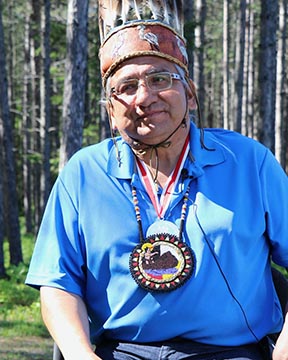
Sayers, former Batchewana chief and vocal participant at AFN assemblies, announced last week that he would be running.

Makinaw, the last person to enter the race, is a former AFN regional chief for Alberta. He is also a former chief for Ermineskin Cree Nation.
“I think there's a lot of work to do for anyone who is thinking about being an AFN chief and, hopefully, they have a real plan and process on what that could look like,” said Robinson.
Among the work she would like to see undertaken is the “significant change from going from Indian Act governance to more traditional governance.”
Robinson admits the change can be “too scary” for some people, but it’s necessary.
“There's a progressive part of society that just doesn't see themselves reflected in the policy of these conventional spaces,” said Skye.
“I don't think we're well served by one national organization that's supposed to represent all of these different viewpoints on the many different issues that people are experiencing,” she said.
In a hearing in Ottawa earlier this week, Frog Lake First Nation Chief Greg Desjarlais told the Members of Parliament on the Standing Committee for Indigenous and Northern Affairs that the AFN “doesn’t work for all.”
“We have to go back to honouring the treaty,” said Desjarlais, who is of the northern Alberta nation in Treaty 6. “Us treaty Indians, we try and uphold treaty, not just for us, but for all of Canada. And we really need to be heard (at the AFN), and sometimes our 46 votes in Alberta are not being heard.”
In early 2022, Treaty 8 nations in Alberta left the AFN and Alberta has been without an AFN regional chief since July 1, 2021.
The AFN has become “very disconnected,” says Skye, and that has become more apparent with the diversity among First Nations, which are operating more and more in a “regional kind of existence.”
As for voter turnout in an election that will be a hybrid of virtual and in-person voting, both Skye and Robinson expect a stronger turnout.
Archibald’s election, which was carried out virtually during the tail-end of the Coronavirus pandemic, saw about half of the 600-plus chiefs cast ballots. Her dismissal saw a turnout of only one-third of those eligible to vote.
“I think there was probably a lot of chiefs that abstained from everything that went on with ousting Archibald and not wanting to be seen as either being sexist or just wanted to avoid it completely,” said Skye. “I think there probably will be more of a turnout this time.”
Nov. 1 was the deadline for nominations for national chief. The vote will occur on Dec. 6, the second day of the Special Chiefs Assembly, Dec. 5 to Dec. 7 in Ottawa. An all-candidates open forum will take place on Dec. 5.
Windspeaker is owned and operated by the Aboriginal Multi-Media Society of Alberta, an independent, not-for-profit communications organization.
Each year, Windspeaker.com publishes hundreds of free articles focused on Indigenous peoples, their issues and concerns, and the work they are undertaking to build a better future.
If you support objective, mature and balanced coverage of news relevant to Indigenous peoples, please consider supporting our work. Whatever the amount, it helps keep us going.

